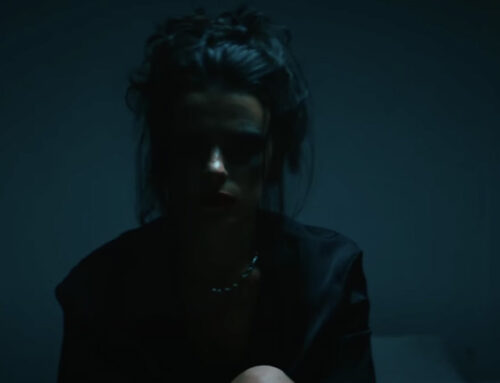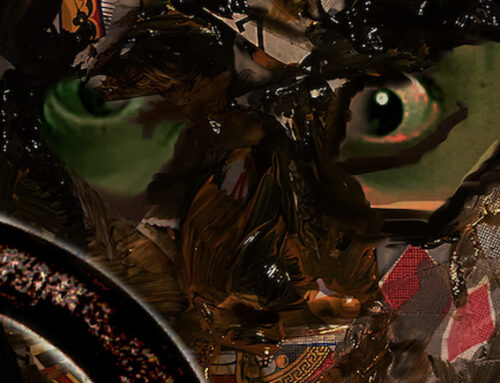LUZ: FLOWER OF EVIL is impeccably crafted from the very first frame of film shot by cinematographer Nicolas Caballero Arenas. You’re sucked into the dreamy, beautiful world of this movie that doesn’t sell the true horrors of man short. Paired with a remarkable score, the beauty of Luz hides the incredible darkness within even if I wouldn’t necessarily couch it as a horror film. There’s a palpable, sweat stained, grittiness in every scene and watching felt like a gut punch as air sucked from the room and my insides tied in knots.
Deep in the mountains of what seems like paradise, El Senor (Conrado Osorio) preaches and prophesies to his small group of fervent followers. Among them are his three daughters, Laila (Andrea Esquivel), Uma (Yuri Vargas), and Zion (Sharon Guzman), who each dutifully play the part of pious disciple. One day El Senor brings to the community a young boy who claims to be God and the events that follow call into question everything they know as well as change the family forever.
A masterful commentary on the dark side of religion, LUZ: FLOWER OF EVIL portrays a deep truth of life–that the “bad guys” don’t always pay while all too often the innocent do. The cognitive rift between the characters –who seem content in their filth, heat, and poverty–and the viewers who look on in awe is palpable throughout. Each frame is sweat-tinged and grimey, covered in dust, blood, saliva, and tears. Visceral terror pours from the faces, voices, and bodies of these characters (in particular the three daughters) with stunning performances holding their own against a stunning backdrop.
As I’ve said before, it could be a kindness to many viewers if films came with content/trigger warnings. I’m not asking for films to remove certain story mechanisms or plot points entirely, just give me enough warning to mentally prepare. I, for one, would have been able to enjoy the beauty and message of Luz, maybe even better appreciate the drama and horror, if I hadn’t been so completely taken aback by some content. LUZ: FLOWER OF EVIL features some of the most abhorrent violence against women I have ever seen on film. A prolonged, violent rape scene is only the beginning of a slew of horrible treatment of women and their continued entrapment. The message is clear and concise, but muddied by content easily construed as torture porn. While many reviewers and filmmakers alike tout this as edgy or visionary, I find it unbearably difficult to watch and almost lazy. At what point is “proving a point” or “making a statement” just an excuse to work out violent fantasies? Will we ever pass this point in filmmaking of such intrinsic and dangerous misogyny regularly creeping its way into the narrative via gruesome detail?
LUZ: FLOWER OF EVIL leaves me more conflicted than nearly any film I’ve watched this year. I’m simultaneously stunned and amazed by the sheer beauty while also pained by the immense violence and inexcusable, disgusting rape (literal & metaphorical) of women. It may be an independent triumph, but it’s full of exhaustingly typical and dangerous narrative ploys that left me exhausted and aching for a shower.
7 out of 10
| Luz: The Flower of Evil | ||
| Rating: | UR | Luz: The Flower of Evil - Official Movie Trailer (2020) |
| Runtime: | 1 Hr. 44 Mins. | |
| Directed By: | ||
| Written By: | Juan Diego Escobar Alzate |
|







